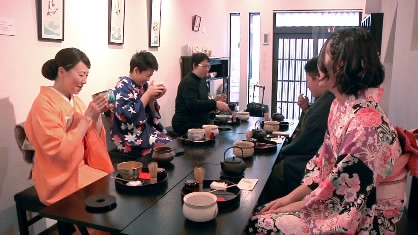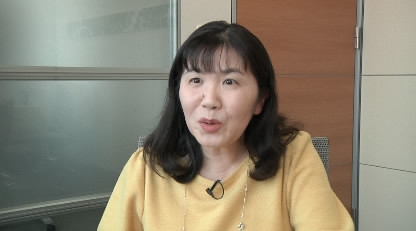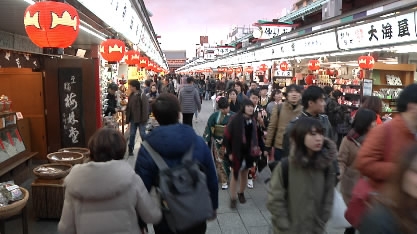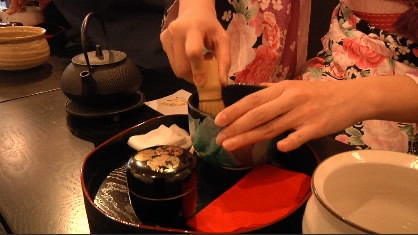
Culture
12:32, 16-Feb-2018
Chinese visitors seek 'calmer' experiences in Japan
By Steve Ross

The number of Chinese visitors to Japan in 2017 rose by 15 percent to over seven million, with the Chinese leading all other nations in travel spending in the country. But now they are moving away from what the Japanese have termed "bakugai" (explosive buying sprees) toward calmer cultural experiences.
Author Kei Nakajima says Chinese tourists are becoming more sophisticated as the numbers rise – a trend that will continue right through the Chinese New Year holiday.
"They are interested in traditional things or events happening on a particular day and and place. They are interested in Japanese culture in the way that Europeans are," said Nakajima, whose just-published book is titled, "Why Wealthy Chinese Love Japan's Traditional Established Businesses – 54 Tips on China Inbound Tourism."

Kei Nakajima. /CGTN Photo
Kei Nakajima. /CGTN Photo
While not all Chinese visitors to Japan are wealthy, as a group their average travel spending is more than all other nations, according to the Japan Tourism Agency. But now the object of their spending may be changing.
"Chinese people have come to do things and have experiences, not only shopping," Nakajima said.
"They want to do or make something special that's available only in Japan; for example, a Japanese tea ceremony or flower arrangement."

Asakusa temple town in Japan. /CGTN Photo
Asakusa temple town in Japan. /CGTN Photo
Chinese tourists increasingly seek to get away from the crowded tourist hot spots of Tokyo, Osaka, and Nagoya, seeking solace in calmer venues and alternative activities. These calmer alternatives are what travel experts call "experiential tourism."
One example of this trend is the Shizu-Kokoro Chado School ("Calm Heart Way of Tea" School), just a few minutes' walk from Tokyo's tourist magnet, Asakusa temple town. There, Chinese and other international tourists learn about "the way of tea" from first degree tea ceremony instructor Mika Soka Haneishi.
"People will think tea ceremony is about drinking macha tea," Haneishi said. "Yes, it is. But that's actually the objective. And the subject would be to connect with nature, and connect with people. I tell them, tea ceremony in Japan was more about spirit, like a spiritual discipline. And they're really, really surprised but also, they really enjoy it."
On the day CGTN visited the Shizu-Kokoro Chado School, the Wang family was taking a class in the "chado" tea ritual.

Whisking macha tea. /CGTN Photo
Whisking macha tea. /CGTN Photo
"In this really simple room, we only talk about very fundamental, very simple things, but very important things: to feel the time being. Mindfulness is not something that you receive, this is something you're seeking out from yourself," Haneishi said.
Miss Wang, the young daughter of the family, gave her impression of the tea lesson that was very much in line with the travel trend.
"Calm...and I can think slowly. In my life, I think about many things, and now I just think about my tea," she said.

SITEMAP
Copyright © 2018 CGTN. Beijing ICP prepared NO.16065310-3
Copyright © 2018 CGTN. Beijing ICP prepared NO.16065310-3